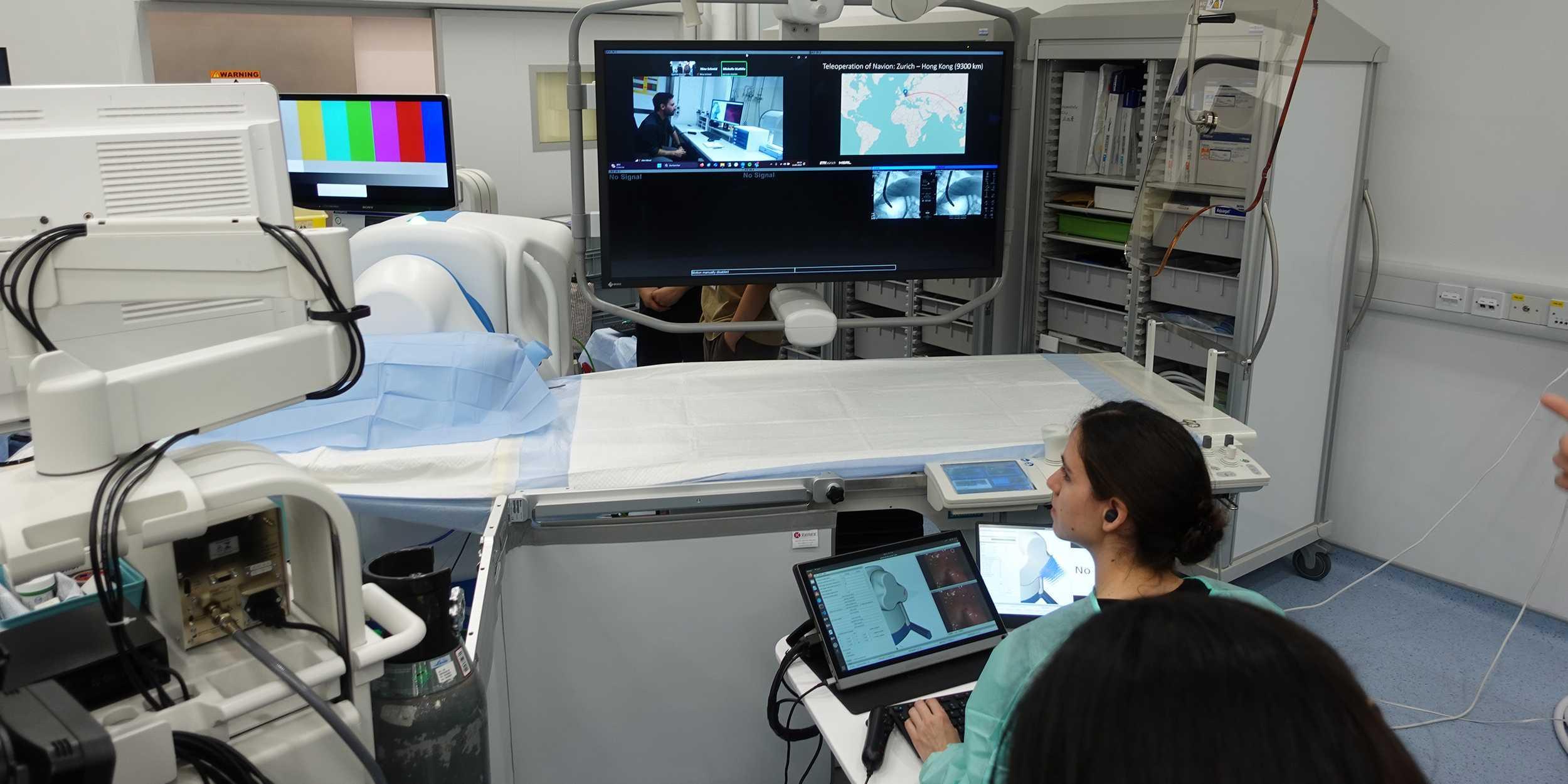
A team of scientists from the Swiss Federal Institute of Technology in Zurich (ETH) and The Chinese University of Hong Kong have for the first time succeeded in an attempt to guide an endoscope at large distance. For this, a pig on an operating table in Hong Kong was examined by a team controlling the probe from Zurich. According to a press release, this breakthrough came about as a result of an innovative navigation system featuring a magnetically controlled endoscope developed at ETH Zurich. This method could in future be used to improve surgical care in remote areas, as the university explains in the press release. For this, a rapid and stable internet connection is required.
At a distance of more than 9,300 kilometers, Alexandre Mesot, a doctoral student at the Multi-Scale Robotics Lab headed up by ETH Professor Bradley Nelson, was responsible for controlling a magnetically operated endoscope with the help of a joystick on a PlayStation controller. He was examining a live pig that was anesthetized on an operating table in Hong Kong. Before Mesot took control of the procedure, surgeons from the Faculty of Medicine at The Chinese University of Hong Kong were on hand to insert the magnetic endoscope through the pig’s mouth into its stomach. Thereafter, Mesot was able to guide a camera to examine the stomach wall of the animal and take tissue samples using a gripper arm. “Not only can the endoscope be bent in any direction thanks to its magnetic head; it’s also smaller and easier to maneuver than conventional devices”, comments Mesot in the press release. In addition to remote control applications, the team believes that the magnetic endoscope could also potentially be used in children, for whom the conventional probes are often too large. The results have now been published in the journal “Advanced Intelligent Systems”. ce/eb
Related news
Meet with an expansion expert
Our services are free of charge and include:
- Introduction to key contacts in industry, academia, and government
- Advice on regulatory framework, taxes, labor, market, and setting up a company
- Custom-made fact-finding visits, including office and co-working space